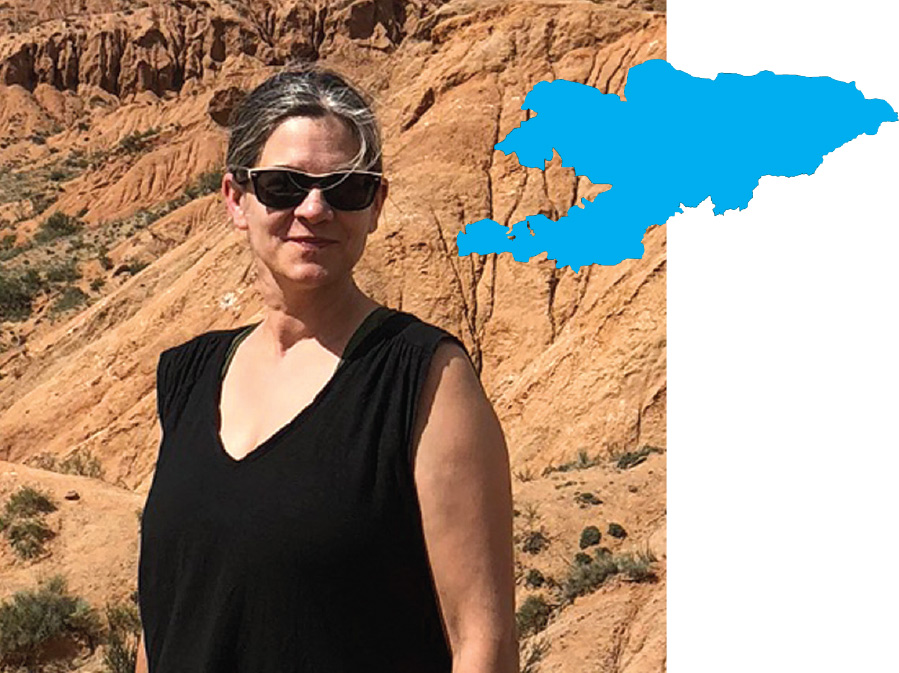

 Kyrgyzstan, Central Asia
Kyrgyzstan, Central Asia
Professor Amanda Wooden, environmental studies, has been immersed in the languages, culture and politics of post-Soviet countries since her first visit to Russia and Belarus in 1992. She has lived in Kyrgyzstan several times since 2001 and returns frequently to her “second home.”
“I care deeply about what happens there, am committed to doing research on environmental topics that concern people and have a responsibility to share what I learn,” Wooden says.
What Interests Her:
Through a Fulbright research grant, Wooden is currently studying the social meaning and political impacts of glacier loss in the Tian Shan mountain range. The project stems from an earlier examination of Kyrgyzstan’s Kumtor mine, where miners are removing glaciers to access gold.
“Kyrgyzstan has a complicated and dynamic history,” Wooden says, noting the residents deal with the contradictions and intersections of post-Sovietism and capitalism, as well as communitarian and religious-spiritual traditions that predate Soviet times and are enjoying a revival.
What She Loves:
Wooden is also drawn to the “stunningly beautiful mountainous landscape” that is central to her research. “The ways in which these landscapes shaped, and continue to shape, the everyday life, language and culture of this dynamic society is fascinating,” she says.
— Beth Kaszuba